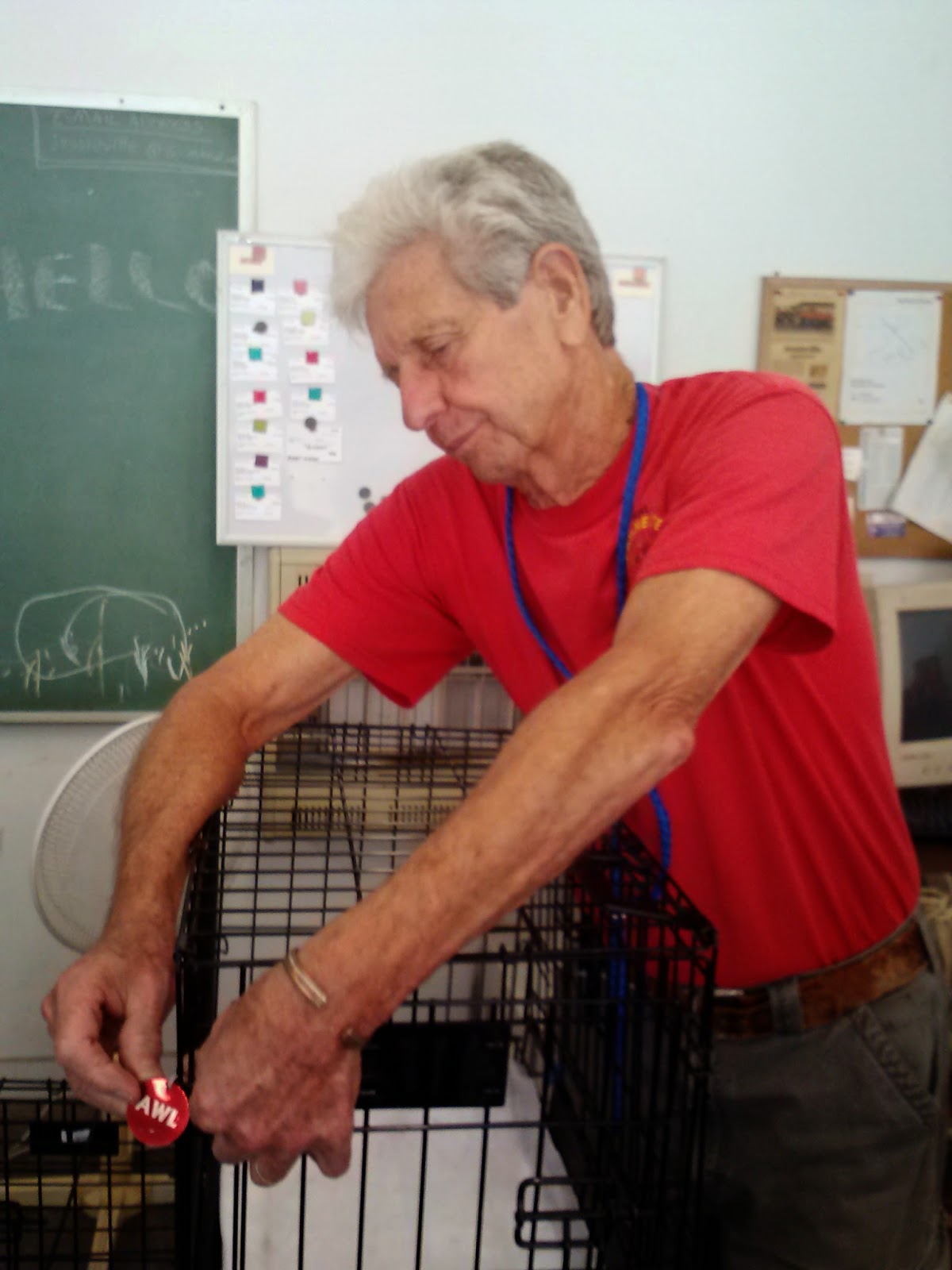Hot Springs Village Animal Welfare League doesn’t
need to provide spay and neuter services for Hot Springs Villagers. The Village is a gated community of retired
middle-class people (mean income $51,502) who pamper their companion
animals.
When Villagers die or must move into nursing
homes, The League steps in to help rehome beloved animal companions. The League provides world-class care for
animals who wander into the village as strays or are dumped off here in the
middle of the night, sometimes injured or ill, and that happens more than you
might think. The League manages a
no-kill shelter with six runs, a beautiful play yard, and plenty of
volunteers. A strong foster program is a
mainstay of The League, and the foster families helped The League adopt out 301
animals in 2013.
What makes The League unique is that they focus on
providing spay and neuter (S/N) mobile clinics for their good but
poverty-stricken (approximately $13,000/year) neighbors who live in rural areas
surrounding The Village. These good
people rescue stray and abandoned animals, but they cannot afford to take the
animals to veterinarians to have them spayed and neutered. The people pay the clinic what they can
afford, but they can’t afford much.
Let me say that again: The League does not provide
S/N clinics for The Village; they provide desperately-needed services for their
non-Village neighbors who cannot afford to spay and neuter their rescued cats
and dogs.
Yesterday I drove around one of the
stunningly-poor unincorporated towns where a two-day clinic would begin today
at the fire station. The town isn’t even
on the census. The world has forgotten
it. Even the stop signs are faded to
white.
As I drove through the run-down, unpainted houses
and the trailers with tape across the cracked windows, I waved to people
sitting on their porches. A lot of people were sitting on their porches because
nobody can afford air conditioners. The
90 degree heat outside was cooler than the 110 degree heat inside. But despite the oppressing heat, everyone I
waved to waved back.
Many of the dogs in this hamlet live in desperate
situations. My heart broke when I saw this heavy-coated husky mix chained to a
tree with only rocks and dirt for comfort.
Panting, he had plastered himself against the side of his owner’s mobile
home trying to feel the little coolness that might remain in the corrugated
tin. Today the heat will get to 90. He probably won’t die, but he might wish he
could. When I saw the BEWARE OF THE DOG
sign on the tree to which he was chained, I started to cry. The sign should have said BEWARE OF PEOPLE.
But most of these desperately poor people love
their dogs and cats and want to take good care of them. I passed a young woman who was carrying a small
Sheltie, pushing her baby in a carriage, leading a Westie, and ushering along
her other two little girls. I stopped
and asked whether she was headed to the clinic.
She said she was. I asked whether
I could take her picture. She said I
could.
I explained that since Bob Barker died and the
board closed his foundation, we had lost a significant part of our S/N funding,
and I was trying to write grants to help continue the clinics. She said, “Thank you so much. I can’t afford
to take these dogs to the vet. I rescued
them this week from a lady who had rescued them from a puppy mill. They stunk and were covered in ticks that took
me all evening to pick off after I bathed them.
So now I have to get them fixed so they don’t have any more babies. I think this one’s already pregnant,” she
said, nodding at the one she was carrying.
She’s the kind of good folks that The League is
trying to help. But we need money to
carry on the work.
After I left her walking down the road, I went to
the clinic to see what I could see. The
dogs were all ages and sizes, from a big, grown blue-eyed husky, to a nervous
adult Chihuahua, to a frightened puppy, to a rambunctious bunch of year-old
mixes of all colors and coats with one blue and one brown eye. I figured the husky was the source of all
those youngsters and countless more.
My heart filled with pride as I watched our President
Mary, a former nurse, listen to an unconscious kitty’s heartbeat; our Spay and
Neuter Coordinator, Angela, comfort a kitty who was trying to awaken from the
anesthesia; and a man I never saw before tag a cage for the next patient.
These wonderful people (and 96 more) could have
been home savoring a second cup of coffee over a good book, playing a round of
golf, or sleeping in. Instead, they were
helping animals in need. Not their own
animals, but the animals of a community who lacked the money- and often education-
to take care of the needs of its own dear dogs and cats.
But volunteers can’t pick up scalpels and operate
on dogs and cats. They can’t perform spay
and neuter surgeries. For that we need
vets, mobile clinics who will come to these poverty-ridden locations and
provide the services that the animals so desperately need. For that, The League needs money: $5000 for
each two-day spay and neuter clinic so young ladies who try to rescue neglected
dogs can walk down the road to get help for them. So big blue-eyed huskies can stop multiplying
endlessly. So maybe, just maybe, dogs
chained to trees in the searing heat under signs that scream BEWARE OF THE DOG
will become only a distant memory.








No comments:
Post a Comment